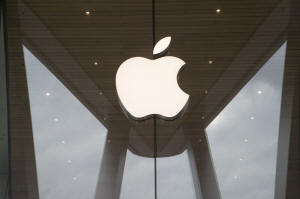Apple heads into annual showcase reeling from AI missteps, tech upheaval
and Trump's trade war
[June 09, 2025] By
MICHAEL LIEDTKE
After stumbling out of the starting gate in Big Tech's pivotal race to
capitalize on artificial intelligence, Apple will try to regain its
footing Monday at its annual Worldwide Developers Conference.
The presummer rite, which attracts thousands of developers to Apple's
Silicon Valley headquarters, is expected to be more subdued than the
feverish anticipation that surrounded the event during the previous two
years.
In 2023, Apple unveiled a mixed-reality headset that has been little
more than a niche product, and last year WWDC trumpeted its first major
foray into the AI craze with an array of new features highlighted by the
promise of a smarter and more versatile version of its virtual
assistant, Siri.
But heading into this year's showcase, Apple faces nagging questions
about whether the nearly 50-year-old company has lost some of the
mystique and innovative drive that turned it into a tech trendsetter.
Instead of making a big splash as it did with the Vision Pro headset,
Apple this year is expected to focus on an overhaul of its software that
may include a new, more tactile look for the iPhone's native apps and a
new nomenclature for identifying its operating system updates.
Even though it might look like Apple is becoming a technological
laggard, Forrester Research analyst Thomas Husson contends the company
still has ample time to catch up in an AI race that's “more of a
marathon, than a sprint. It will force Apple to evolve its operating
systems.”

If reports about its iOS naming scheme pan out, Apple will switch to a
method that automakers have used to telegraph their latest car models by
linking them to the year after they first arrive at dealerships. That
would mean the next version of the iPhone operating system due out this
autumn will be known as iOS 26 instead of iOS 19 — as it would be under
the current sequential naming approach.
Whatever it's named, the next iOS will likely be released as a free
update in September, around the same time as the next iPhone models if
Apple follows its usual road map.
Meanwhile, Apple's references to AI may be less frequent than last year
when the technology was the main attraction.
While some of the new AI tricks compatible with the latest iPhones began
rolling out late last year as part of free software updates, Apple still
hasn't been able to soup up Siri in the ways that it touted at last
year's conference. The delays became so glaring that a chastened Apple
retreated from promoting Siri in its AI marketing campaigns earlier this
year.
“It’s just taking a bit longer than we thought,” Apple CEO Tim Cook told
analysts last month when asked about the company's headaches with Siri.
“But we are making progress, and we’re extremely excited to get the more
personal Siri features out there.”
[to top of second column] |

The Apple logo is displayed at an Apple store, Jan. 3, 2019. (AP
Photo/Mary Altaffer, File)
 While Apple has been struggling to
make AI that meets its standards, the gap separating it from other
tech powerhouses is widening. Google keeps packing more AI into its
Pixel smartphone lineup while introducing more of the technology
into its search engine to dramatically change the way it works.
Samsung, Apple's biggest smartphone rival, is also leaning heavily
into AI. Meanwhile, ChatGPT recently struck a deal that will bring
former Apple design guru Jony Ive into the fold to work on a new
device expected to compete against the iPhone.
“While much of WWDC will be about what the next great thing is for
the iPhone, the unspoken question is: What's the next great thing
after the iPhone?” said Dipanjan Chatterjee, another analyst for
Forrester Research.
Besides facing innovation challenges, Apple also faces regulatory
threats that could siphon away billions of dollars in revenue that
help finance its research and development. A federal judge is
currently weighing whether proposed countermeasures to Google's
illegal monopoly in search should include a ban on long-running
deals worth $20 billion annually to Apple while another federal
judge recently banned the company from collecting commission on
in-app transactions processed outside its once-exclusive payment
system.
On top of all that, Apple has been caught in the cross-hairs of
President Donald Trump's trade war with China, a key manufacturing
hub for the Cupertino, California, company. Cook successfully
persuaded Trump to exempt the iPhone from tariffs during the
president's first administration, but he has had less success during
Trump's second term, which seems more determined to prod Apple to
make its products in the U.S..
“The trade war and uncertainty linked to the tariff policy is of
much more concern today for Apple’s business than the perception
that Apple is lagging behind on AI innovation,” Husson said.

The multi-dimensional gauntlet facing Apple is spooking investors,
causing the company's stock price to plunge by nearly 20% so far
this year — a decline that has erased $750 billion in shareholder
wealth. After beginning the year as the most valuable company in the
world, Apple now ranks third behind longtime rival Microsoft,
another AI leader, and AI chipmaker Nvidia.
All contents © copyright 2025 Associated Press. All rights reserved |